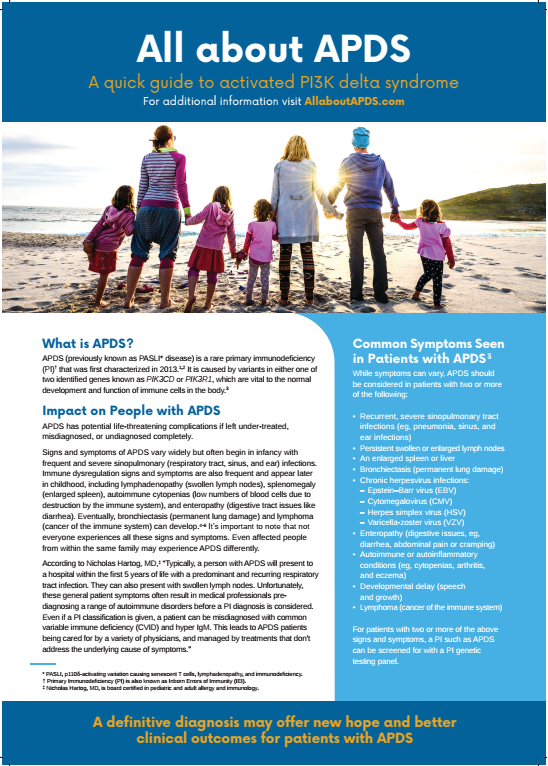Antibodies – special shaped proteins made by B cells of the immune system. The special shape allows antibodies to bind with foreign objects like bacteria and viruses in a way that neutralizes these invaders. Therefore, antibodies are an essential part of fighting infection. Antibodies are made and stored after infections or after vaccines. One way to examine if you have healthy antibody responses is to give you a vaccine and measure the antibodies you produce in response to the vaccine. This measurement is often referred to as “titer.”
APDS (Activated PI3K Delta Syndrome) – a rare primary immunodeficiency caused by variations in the PIK3CD or PIK3R1 genes. These variations cause B and T cells to function improperly, resulting in infections, trouble breathing, swollen lymph nodes, an enlarged spleen or liver, digestive tract issues, low numbers of blood cells, conditions where the immune system mistakenly attacks the body such as arthritis or eczema, and even lymphoma.
B-lymphocytes (B cells) – immune cells from the bone marrow that produce antibodies. (The “B” in B cell is for bone.) Along with T cells, they fight specific foreign objects that enter the body. One way B cells accomplish this is by making antibodies. 67-88% of people with APDS have reported low overall numbers of B cells.
Bronchiectasis – a condition where the bronchial tubes in your lungs widen and thicken. This makes them inelastic, and it’s difficult to move oxygen through them. It’s also easier for bacteria and mucus to accumulate in the widened spaces. The result is frequent infections, which along with overproduction of B and T cells in the airways can lead to permanent damage to the lungs. This damage can cause shortness of breath, coughing up mucus, and chest pain.


